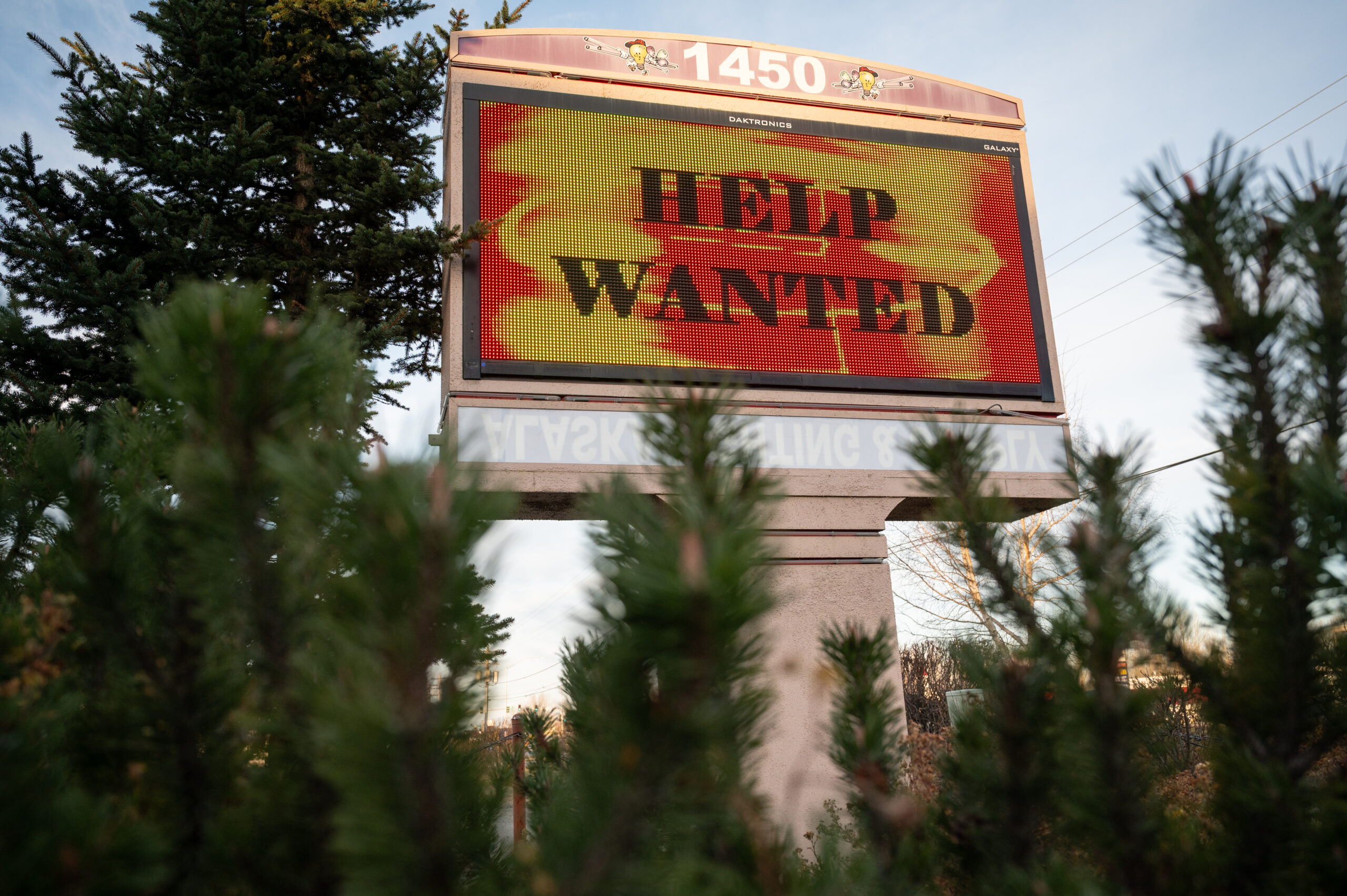Bussiness
Alaska businesses are divided over a ballot measure that would raise minimum wage and mandate sick leave

David Ottoson has owned Rainbow Foods, a natural grocery store in Juneau for 44 years. Most of his 30 employees already earn more than $15 an hour, but a handful of highschoolers make $14. They all earn paid time off.
He said his wages are competitive with other grocery stores, and thinks it’s part of the reason he’s able to retain employees.
“$15 an hour isn’t that much,” he said. “During the pandemic, it was harder to find people, so we had to increase what we were willing to pay to get people to come to work.”
If passed, Ballot Measure One would raise the minimum wage from $11.73 to $13 in 2025, $14 in 2026 and $15 in 2027. Annual cost of living adjustments would begin in 2028.
Employers with more than 15 employees would be required to allow staff to accrue up to 56 hours of paid sick leave per year, and up to 40 hours if there’s less than 15 employees. It would also prohibit employers from making their employees attend meetings about religious or political issues, but some employers would be exempt.
Ottoson said he supports the measure because Alaskans shouldn’t have to choose between being sick and their paycheck.
“The value it has for keeping people who are at work from getting sick, from having germs spread from their fellow workers, I think, probably outweighs any cost that’s involved,” Ottoson said.
Ottoson is among over 120 small businesses owners that have joined a coalition in support of the measure, called Better Jobs for Alaska.
Supporters say the measure would boost consumer spending, improve retention, and that paid sick days are good for businesses. Opponents say the measure’s language is too vague and would have detrimental impacts to small businesses.
The Chamber of Commerce in Anchorage, Fairbanks, Juneau and the Alaska Chamber are among a group of business organizations and businesses that came together to oppose the voter initiative, called Protect Our Small Businesses & Jobs.
Alaska Chamber President and CEO Kati Capozzi said the measure’s language leaves too much room for interpretation.
“I’ve read this thing 150 times,” she said. “Every day, I’ll have a member call me and they’ll be like, ‘Well, what about this? How would it apply in this way?’ And I’m unable to answer it. It’s just not tight language.”
Nearly 70% of Alaskans voted to raise the minimum wage a decade ago but unlike that measure, this one includes sick leave.
If it passes, it would allow employees to use sick leave to care for a family member, but Capozzi said the definition of family member is one example of what she believes is overly broad language. It includes immediate family members, legal guardians, and any other individual whose “close association is the equivalent of a family relationship.”
“Is that neighbor Bob? Is it my dog?” Capozzi questioned.
Alaska has the lowest minimum wage of West Coast states by almost $2, according to the Department of Labor. Capozzi said 92% of Alaskans already make more than $15.
Alaska is one of seven states that require employers to pay tipped employees the full minimum wage, and Capozzi said that wasn’t taken into consideration when writing the measure. She said many tipped workers make significantly more than their hourly wage.
She said the measure would raise operational costs for business owners and would force businesses to charge more, cut positions, or even close.
James Strong owns Sweet Caribou, an eatery in Anchorage. If the measure passes, he said he’ll have to raise prices and cut part-time positions. He estimates the measure would cost him up to $12,000 each month in operating costs.
“What I have to do is I’ll have to do combined full time jobs. So [who it] really impacts [are] college kids that [are] looking to work four or five hours a day,” he said.
Most of Strong’s employees start at minimum wage and make tips, but some staff earn higher wages and don’t earn tips.
The measure allows employees to use paid sick leave for three days before an employer can require “reasonable documentation,” which the measure exemplifies as a signed document from a healthcare professional indicating that paid sick leave is or was necessary.
Strong worries it will make employees less reliable.
“People are gonna find more reasons to call in sick,” said Stong. “You’re going to have people that are going to be less reliable.”
Employers aren’t required to provide additional sick leave if they already have a paid time off policy that’s sufficient for hourly requirements.
But up in Fairbanks, Carey Fristoe, the co-owner of Black Spruce Brewing Company, sees it differently.
Fristoe thinks the measure could give hospitality businesses, like his, a competitive hiring advantage. The brewery opened six years ago, and he said most of his seven employees have worked there for several years.
His employees all make more than $15, except a single front-of-house employee who makes $13 plus tips. He thinks paying a higher wage would save him the time and cost of training new employees.
“Having people on board that are trained up, [and] in there for the long haul makes such a huge difference for us,” Fristoe said.
Fristoe also said employees shouldn’t have to worry about their paycheck when sick. His business is centered on food and beverage, and he said allowing employees to take time off when they’re sick keeps their customers, and other employees healthy.
Correction: An earlier version of this story misstated that one of Black Spruce Brewing Company’s employees made minimum wage. They make $13, $1.27 more than minimum wage.
Ava White reports on economics and hosts the statewide morning news at Alaska Public Media. Reach her at awhite@alaskapublic.org or 907-550-8445. Read more about Ava here.










